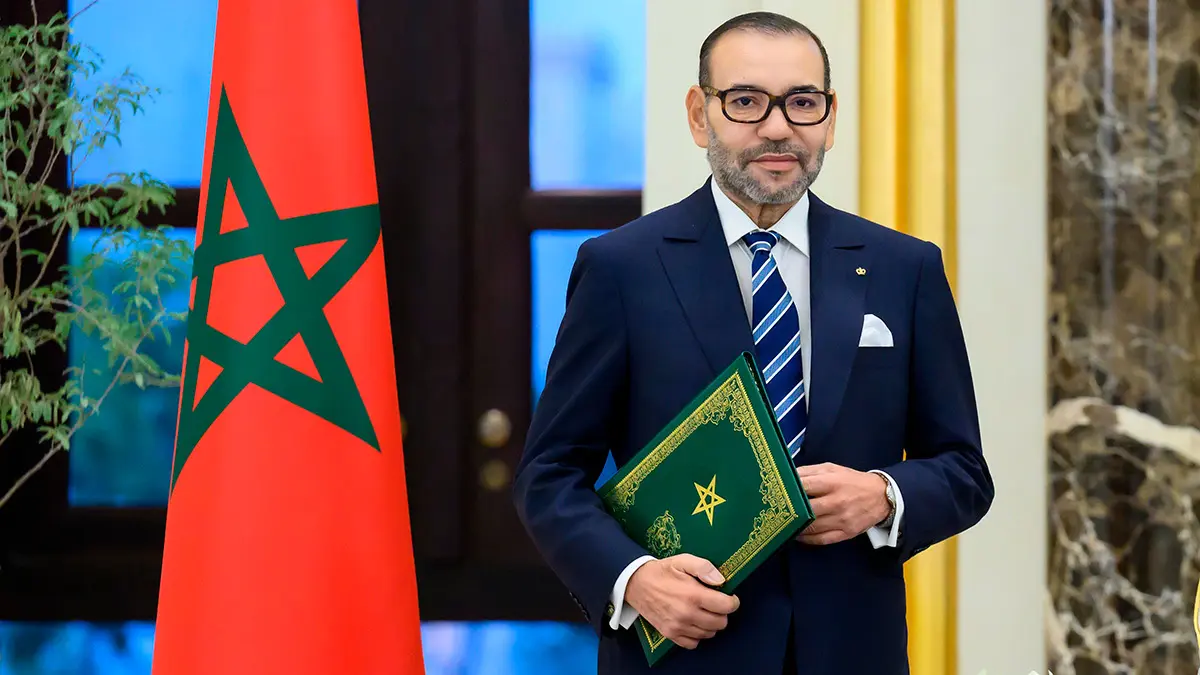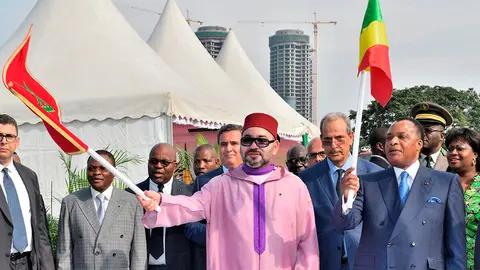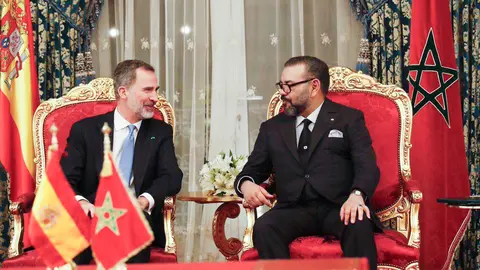Mohammed VI, a developed and modern Morocco

The global vision of the King and his entourage to lead the reforms that the country needed to overcome its economic, social, structural and regional problems has obtained brilliant results in all sectors of Moroccan society and has laid the foundations to face a present complicated by the international crisis affecting the whole world and to look forward to a future with many guarantees of progress and stability.
At the domestic level, the economic and social evolution is admired by anyone who is capable of knowing the reality before and after his accession to the throne. At the international level, Morocco now plays an important role in the world, with great protagonism in Africa, and with international support from large countries for the solution of the Sahara conflict with its proposal for autonomy under Moroccan sovereignty. This also implies excellent relations with the United States and the European Union, and important projects with China, Russia and other powers.
The celebration of Mohammed VI's 25 years on the Moroccan throne is a celebration of profound change, a metamorphosis of development and modernisation evident in Moroccan society. Anyone who has known the Morocco of 1999 and has visited the country over the years has been able to see a new reality with new infrastructures for the transport and mobility of people and goods, the industrialisation of the economy with new technologies and digitalisation that also applies to agri-food, textiles, water, health, education, tourism and renewable energies, among other sectors.
There are undoubtedly many problems to be faced, but the decisions taken in recent years on the industrialisation of the country and the opening up to foreign investment represent a guarantee for the increase in economic activity and the creation of stable, quality employment. The new production model serves to fight inequality by promoting education and training at all levels with a reform of the Investment Charter that facilitates the arrival of foreign investment and offers numerous opportunities for good business in all sectors.
The reform of the Family Code is another important step to promote the role of women in a new social framework, the resolution of all cases of human rights violations with the consequent compensation and the firm will to move forward to achieve a transformation that brings social justice and guarantees coexistence in peace and freedom.
Mohammed VI has devoted much of his resources to the development of the less favoured regions with extraordinary success in the north, in Tangier-Tetouan-Al Hoceima, with the Renault factory and the port of Tangier Med as flagships of a productive Morocco capable of operating and extending the high-speed train network while respecting religious, social and cultural traditions. In the international arena, his diplomatic offensive has enabled him to count on the support of numerous countries, with great political and economic weight worldwide, for his proposal of broad autonomy for the Sahara under Moroccan sovereignty. A reality that is making headway day by day in the southern provinces with the unanimous acceptance of the Sahrawi population, which now enjoys a dignified horizon and is demanding to be able to regroup with their relatives in the Tindouf camps.
Morocco guarantees security and the fight against terrorism, and this is being demonstrated in Paris at the Olympic Games, where the French authorities recognised that a large part of the security of this great world event depended on Morocco's collaboration.
Morocco's political, economic and commercial leadership in Africa now allows it to launch an initiative that is fundamental for peace and stability in North Africa: strengthening cooperation with the Sahel countries so that they can use Morocco's Atlantic ports to market their products.
With the support of the United States and European countries such as Spain, this action is crucial to prevent Russian and Iranian terrorist groups and mercenaries from taking control of the region.
Ensuring stability and security in North Africa is an essential element for the stability and security of Europe and the world.
In this context, Mohammed VI's outstretched hand to the people and authorities of Algeria, the brotherly neighbour, should be met with a positive response from political and military leaders who cling to an absurd confrontation with Morocco when it is clear that restoring relations between the two great countries of the Maghreb would make a very positive contribution to citizens living along a closed border.
A new relationship should make it possible to sit down at the United Nations negotiating table to put an end to the Sahara conflict and recognise the unchanging reality of the will and desire of the vast majority of Saharawis to live as inhabitants in the southern provinces of Morocco with an autonomy that already includes the best living conditions for Saharawi families who yearn for family reunification with those living in the Tindouf camps.
This 25th anniversary should serve to raise awareness in Spain of the work done by Mohammed VI and his entourage for the benefit of Morocco and stability in the region. Beyond self-interested clichés or absurd ignorance, Morocco and Spain have common geostrategic interests, good historical and cultural ties, and should consolidate a relationship that also allows them to confront problems without trauma.



